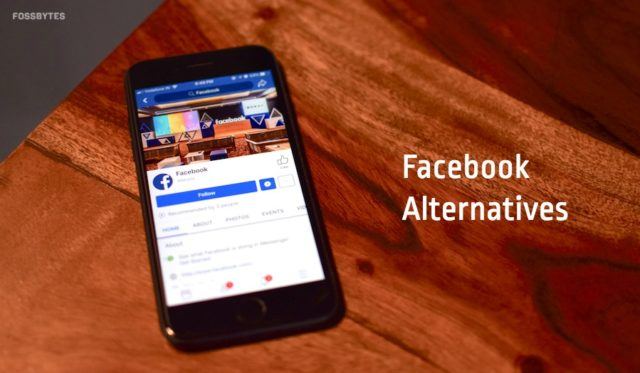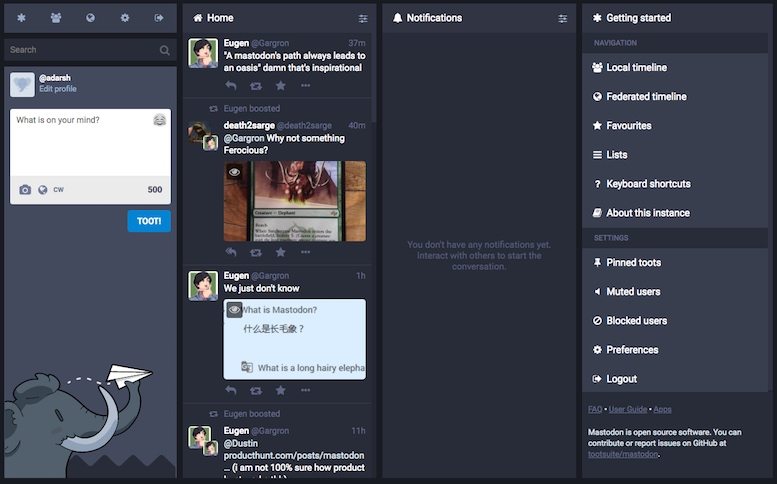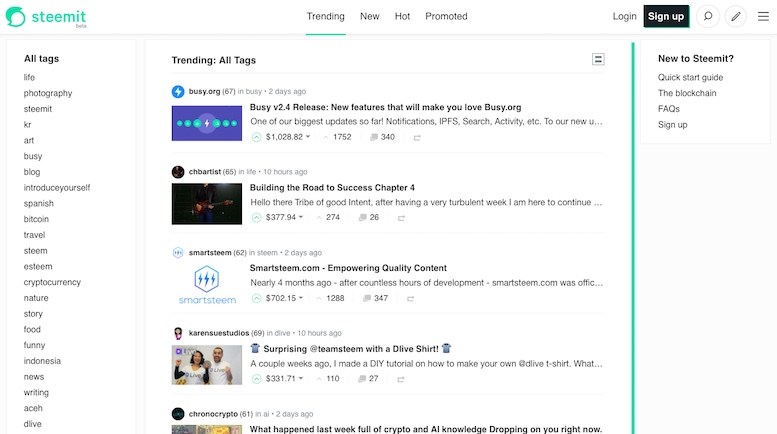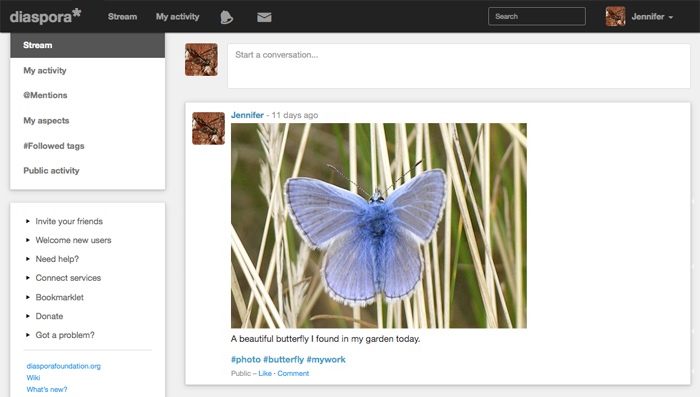If you try to keep yourself updated with the latest developments in the technology and security world, you must be knowing about the recent Facebook-CA scandal. While most of us knew about Facebook’s relentless data collection practices, this revelation has forced many of us to raise questions and look for Facebook alternatives. Some are even looking for ways to permanently delete their Facebook account.
There are many social networks, messaging apps, and news aggregation sites that you can get as a replacement of Facebook. So, let’s tell you about them in brief:
Top 8 alternatives to Facebook’s website and app
1. Vero
The subscriber usage data is the bread and butter of social networks like Facebook. Vero is an option in this case as it’s based on the subscription model; so, it doesn’t show ads and collect data for the same. This fast-growing social media alternative is only app-based. They do collect your usage stats but make it available to you only to monitor how often you use the service. However, this option is turned off by default.
It calls itself a social network for people who love anything enough to share it and want to have a better control over what they share. Due to heavy rate of new signups, this social app has extended its “free for life” offer for the first million users. It already has a good number of artists and a polished interface.
Available for Android and iOS
2. Mastodon
Last year, Mastodon made splashes as an open source Twitter competitor but you can also use it as a Facebook alternative. Apart from all the differences in terms of privacy, character length, what really sets Mastodon apart is the “instance” feature. You can think of the service as a series of connected nodes (instances) and your account belongs to a particular instance.
The whole interface is divided into 4 card-like columns. If you use this service as an alternative to Facebook, it might seem confusing but you might get a hang of it with time. Mastodon.social is the most popular instance, so you can start with it.
Web version available, multiple iOS and Android apps thanks to developer-friendly API
3. Ello
Ello first gained popularity in the US about 3 years ago when it posed itself as a Facebook killer social network. This happened due to Facebook’s policy of forcing the members to use their legal name. Since then, it had made headlines on different occasions due to different reasons. Now that Zuckerberg’s service is facing flak, Ello is again gaining some traction. Primarily focused on artists and creative people, Ello is also ad-free. It also refrains itself from selling the information about the users to third parties. By being a niche website, Ello continues to attract users and establishing as a creators network.
Available on Web, iOS, and Android
4. Digg
If you primarily use social networks for getting your daily dose of news, you have tons of options at your disposal. Digg, Flipboard, Feedly, Google News, Apple News, etc., are great options. Digg stands out among them due to its interesting curation process. From various media outlets, it provides the most important stories and videos. It’s a thumbs-up-based website and you can use it even without creating an account.
Available on web, mobile apps, and daily newsletter
5. Steemit
Steemit also appeared on our list of open source alternatives to Reddit. This website could be seen as a combination of Quora and Reddit. You can publish your posts on Steemit and based on the upvotes, you receive Steem crypto tokens. To cryptocurrency and open source enthusiasts, this website might seem better than Facebook.
Steemit claims to record about 10 million visits per month. The growth of Steemit has been organic and the users are sticking with it due to the compensation they are receiving in return for their time. Even if you don’t post content on your own, you can use it as a news aggregator and get involved in conversations.
Available on web
6. Raftr
Developed by a former Yahoo executive, Raftr poses itself as a civilized social network. It works by connecting you to the communities of people who share similar interests. As you sign up, it gives you two options: find out what’s going on in the real world or connect with people at your college.
On the privacy front, Raftr does collect some data to build your profile. However, it doesn’t share any personally identifiable information with third parties. Overall, it’s a great option to follow your interests and what’s relevant happening around the world.
Available for iOS, Android, and web
7. Diaspora
The search for Facebook alternatives also covers Diaspora. It is a nonprofit and distributed social network that’s based on free Diaspora software, which is a free personal web server that forms nodes for its decentralized nature.
Thanks to its distributed design and because no person owns it, it’s away from any kind of advertisement and corporate interference. After making an account, you retain the ownership of your personal data. It’s also better than Facebook for people who wish to hide their real identity as it allows pseudonyms. You can use hashtags, mentions, text formatting, etc.
Available on web
8. Signal/Telegram/iMessage
Most of us use Facebook and its products for consuming news and reading news. If that’s the case with you, you can subscribe to many reliable news services, curate relevant RSS feed, etc. For the messaging part, there are privacy-focused messaging apps. They aren’t really a social network but they support calling, group chats, and more.
Signal and Telegram as two notable encrypted messaging services. Many services also offer disappearing messages. Apple users have an additional option of Apple News and iMessage.
YOU MAY ALSO LIKE:








Comments
Post a Comment